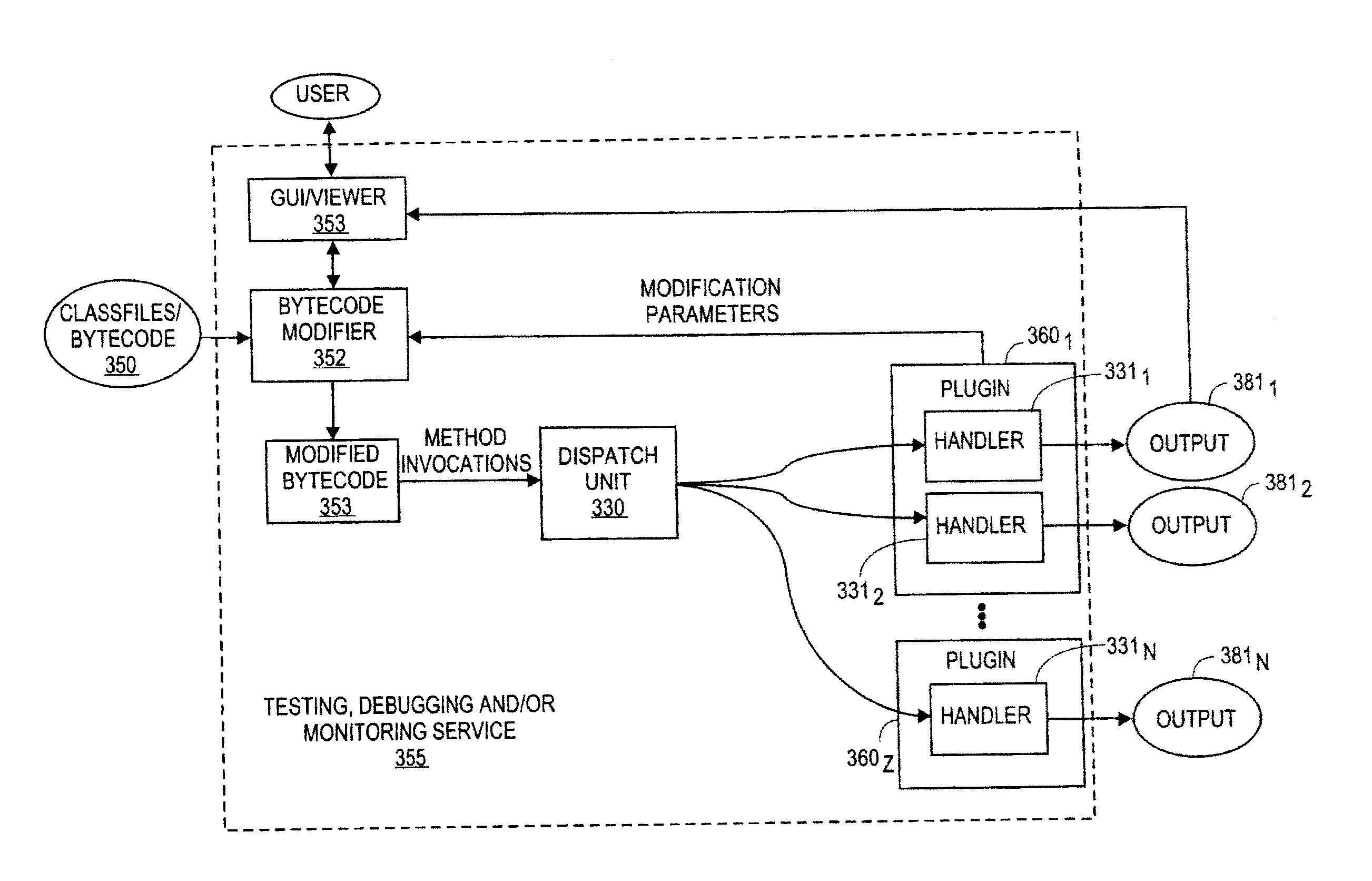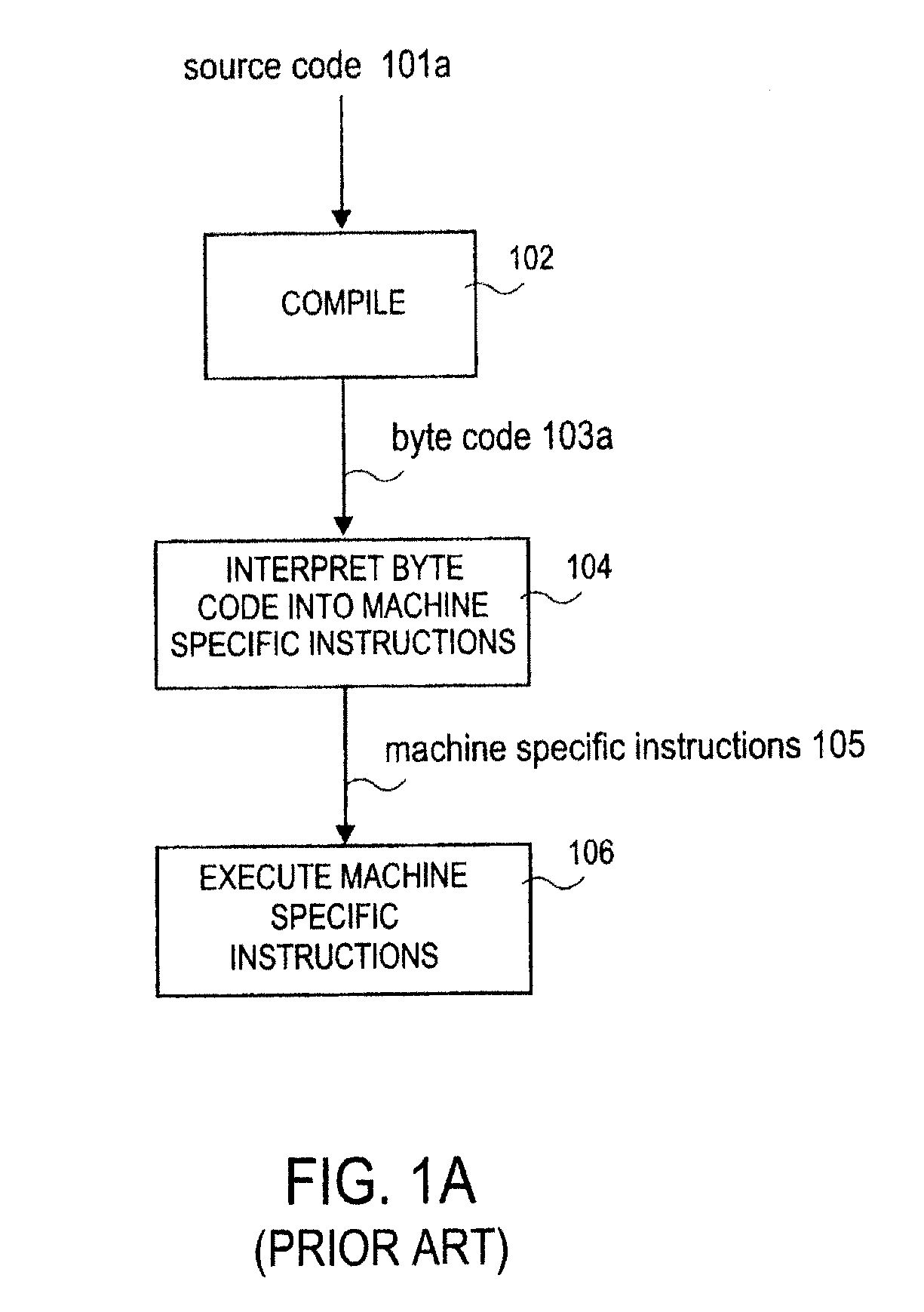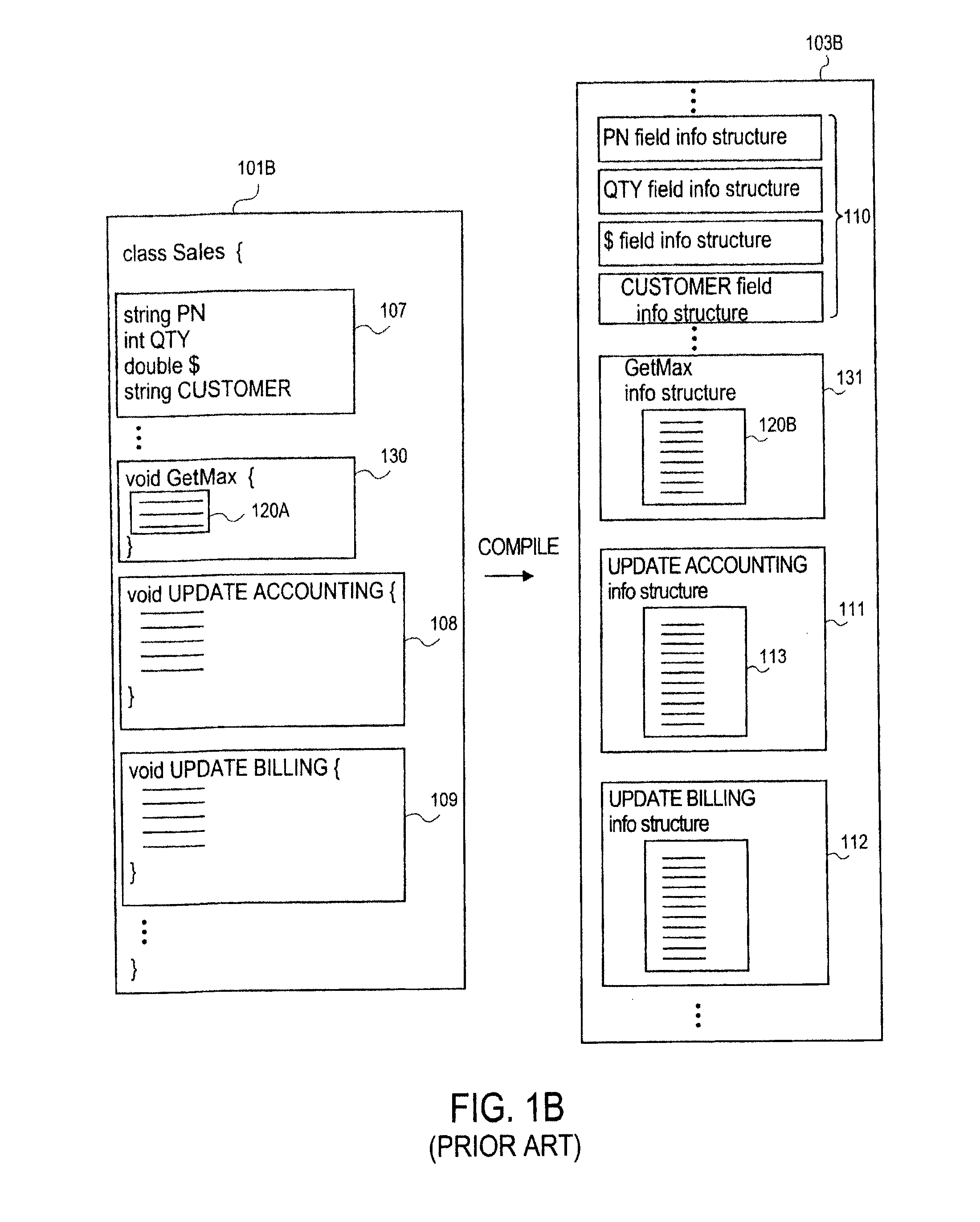Registration method for supporting bytecode modification
a registration method and bytecode technology, applied in the field of software arts, can solve the problems of brittle client-side code, limited two-tiered architecture, and difficult task of installing and maintaining up-to-date client-side applications on a large number of different clients
- Summary
- Abstract
- Description
- Claims
- Application Information
AI Technical Summary
Benefits of technology
Problems solved by technology
Method used
Image
Examples
Embodiment Construction
1.0. Architectural Overview
[0057]FIG. 3 and FIG. 4a-b describe techniques that can be directed to the testing, debugging and / or monitoring of sophisticated object-oriented virtual machine-based software. Throughout the description, for the purposes of explanation, numerous specific details are set forth in order to provide a thorough understanding of the present invention. It will be apparent, however, to one skilled in the art that the present invention may be practiced without some of these specific details. For example, while the embodiments described below focus on a Java environment in which Java “bytecode” is processed by a Java “virtual machine,” various underlying principles may be implemented in interpreted-code and non-interpreted-code environments as well as object oriented and non-object oriented environments.
[0058]FIG. 3 illustrates an embodiment of a service 355 capable of testing, debugging and / or monitoring the bytecode 350 of a sophisticated “enterprise” software pl...
PUM
 Login to View More
Login to View More Abstract
Description
Claims
Application Information
 Login to View More
Login to View More - R&D
- Intellectual Property
- Life Sciences
- Materials
- Tech Scout
- Unparalleled Data Quality
- Higher Quality Content
- 60% Fewer Hallucinations
Browse by: Latest US Patents, China's latest patents, Technical Efficacy Thesaurus, Application Domain, Technology Topic, Popular Technical Reports.
© 2025 PatSnap. All rights reserved.Legal|Privacy policy|Modern Slavery Act Transparency Statement|Sitemap|About US| Contact US: help@patsnap.com



